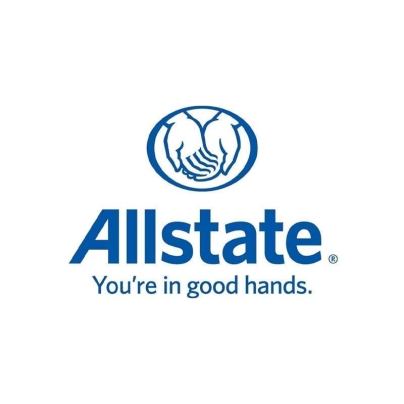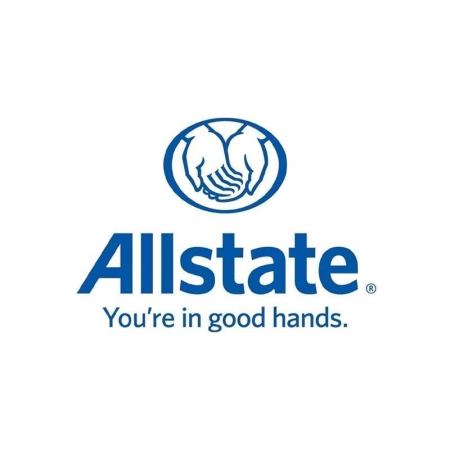
We may earn revenue from the products available on this page and participate in affiliate programs. Learn More ›
Whether someone is a brand-new renter or has rented for years, finding both the best and cheapest renters insurance can offer additional peace of mind and financial protection. Renters insurance covers personal property in the event it’s damaged or destroyed by a covered event, such as a fire or a burglary. It also provides liability coverage for the policyholder in the event they or their pets are found to be responsible for damage or injury to a third party. Additionally, it provides medical payments to others, which can help cover some of the medical expenses if a guest is injured in their home, regardless of fault. In extreme cases, when a renter is displaced from their property because of fire or another covered loss that leaves the home uninhabitable, the policy can cover living expenses while the damage is repaired.
Before researching how to get renters insurance for the lowest price possible, renters will want to bear in mind that the cheapest renters insurance doesn’t necessarily mean the best value. The rankings below are intended to reflect the best value for policyholders, including price, amount of coverage, and overall customer experience. All of the companies listed offer affordable premium options for renters insurance, but the rankings are based on overall value.
- BEST OVERALL: State Farm
- RUNNER-UP: Allstate
- BEST EXTENDED COVERAGE: Farmers Insurance
- BEST FOR SERVICE MEMBERS: USAA
- ALSO CONSIDER: Lemonade

What to Consider When Choosing Among the Cheapest Renters Insurance Companies
No matter where a rental property is located, from a small town to a large city, or what type of dwelling it is, whether an apartment or a single-family home, renters will want to keep in mind that not all renters insurance policies are the same. Each provider operates in a different way, from how it handles a claim to the types of customer service options it offers. After a renter has narrowed down a list of potential renters insurance companies, it’s important for them to ensure the provider offers coverage in the area where they live and determine the amount of coverage they need. In addition, they’ll want to check on policy options, costs, deductibles, and other available add-ons to select the most appropriate provider.
Coverage Area
Not all insurance providers offer renters insurance in every state. There may be cases where coverage is offered within a state or listed as nationwide renters insurance, but it may exclude certain ZIP codes. When it’s time to compare renters insurance companies, one of the first steps for a renter to take is to verify coverage is extended to the exact location of the rental property. If coverage is not available, then the company is excluded from the list and the renter can move on to the next option. It’s also critical for a renter to ensure the rental company offers the coverage and policy options they need and that this specific coverage is available in their location. It’s possible for a provider to exclude specific coverages in different states, which a renter will want to keep in mind before selecting an insurer.
Coverage Amount
The amount of coverage a renter needs for their policy is often a top priority. The coverage limit applied to the policy is the maximum amount a renter would receive in a claim (less the deductible), which means it needs to be robust enough to offer adequate protection in the event of a loss. Personal property coverage is designed to offer protection in the event a renter’s personal property is stolen, damaged, or destroyed by a covered peril (or event). For that reason, it’s important to determine whether the coverage amount a renter selects is enough to replace all of their personal property in the event of a total loss. Renters will want to take note of these coverage limits to ensure that the policy provides enough coverage so they aren’t left paying out of pocket to replace personal property.
Insurance Premiums
When shoppers are considering affordable renters insurance options, cost is certainly a major factor. Insurance premiums are the amount the policyholder has to pay to maintain the policy and receive coverage. Insurance premiums can often be paid on a monthly or quarterly basis, although some insurers may require an entire year of payment up front. If budgeting is a concern, the renter will need to confirm the insurance provider offers payment schedules suitable to their needs before they make a final selection.
The cost of insurance premiums are influenced by a variety of factors. The property location, coverage amounts, and any policy add-ons are a few aspects that can impact premiums. When looking for the cheapest renters insurance, it’s crucial for a renter to provide the same information for each renters insurance quote they request from different providers. This ensures the renter is truly comparing apples to apples when considering each provider.
Policy Options
Another critical consideration renters will want to take into account when looking for cheap renters insurance is understanding the policy options from the insurer. Certain elements such as personal property coverage, liability, and loss of use coverage are included in every policy. But policy options, or add-ons, are offered above and beyond the basic policy and can provide additional value to the policyholder. These options vary from provider to provider, which means the renter needs to understand what an insurer can offer in the way of add-on coverage and whether they need this additional protection.
Examples of common add-on coverages include the following:
- Scheduled personal property coverage: This type of additional coverage is designed to provide coverage for belongings that aren’t fully covered or have coverage limits under a standard renters insurance policy. Examples include expensive jewelry, antiques, musical instruments, and art collections.
- Replacement cost coverage for contents: Most standard renters insurance policies cover a renter’s personal property at actual cash value, or the depreciated cost of the items. A renter may want to opt for replacement cost coverage instead, which covers the cost to replace lose or damaged property at today’s prices, allowing a renter to replace damaged or destroyed items with like ones.
- Earthquake coverage. Renters who live in areas at a high risk for seismic activity, such as California, may want to add earthquake coverage to their renters insurance policy if it’s offered. This can help protect them in the event an earthquake destroys or damages their belongings.
Quote Process
It is beneficial for a renter to obtain multiple quotes when searching for the best companies for renters insurance. Not only does it offer a more accurate picture of how much insurance premiums will cost for a specific property, but it also offers renters a glimpse of what it’s like to work with an insurer. Some providers offer the entire quote process for renters insurance online, while others require working with an agent either over the phone or in person. Some providers may offer an option to speak with someone in customer service if there are questions throughout the quote process, and this may be a consideration for renters when choosing the best company for the cheapest renters insurance.
Claims Process
Filing a claim doesn’t have to be a long, drawn-out, or difficult process, and some providers offer more ways to expedite a claim versus others. Since each insurer approaches claims in its own manner, it’s worth a renter finding out the claim-filing options for each provider in case they ever need to make a claim. Some insurers allow policyholders to file claims online or through a mobile app. This allows the renter to fill out the necessary paperwork and submit supporting documents, photographs, videos, and other evidence without ever having to pick up the phone. Other providers have local agents that a renter can work with, which some renters may prefer as it allows their questions to be answered directly and makes for a smoother process.
Deductibles
Selecting a deductible amount is an important part of selecting a renters insurance policy, and most insurers offer multiple options. A deductible is the out-of-pocket amount the policyholder would be responsible for if a claim is filed. This amount is deducted from the amount the insurance company pays the policyholder. For example, if a renter has a $500 deductible and files a $3,000 claim, the insurer would pay $2,500, which accounts for the $500 deductible.
Increasing a deductible often leads to lower insurance premiums, which makes sense since the policyholder would be shouldering more of the cost in the event a claim is filed. However, if a renter selects too high a deductible and has a significant claim, the out-of-pocket expense can substantially impact the renter’s budget. Renters will want to weigh the benefits and risks of a low or a high deductible when determining the right renters insurance policy.
Additional Policies
Anyone who is searching for the cheapest renters insurance may want to consider pairing a renters insurance policy with another type, such as auto, life, or even boat or ATV insurance. Insurers often offer substantial savings for policyholders who bundle more than one policy with the same company. Plus, it can offer a more convenient solution, since the policyholder only has one provider to work with rather than several when it comes to making payments, managing claims, or using a mobile app.
Discounts
Another differentiating factor for renters to consider when it’s time to compare renters insurance quotes is which provider offers the most valuable discounts. Discounts can help renters save money on insurance premiums and can turn an otherwise expensive policy into a more affordable option. Discounts vary from one provider to the next, but common ones include the following:
- Bundling discounts for renters with multiple policies under the same provider;
- Paperless billing discounts for customers who opt to receive their statements electronically;
- Loyalty discounts for renters who hold a policy for a certain number of years; and
- Protective devices discounts for customers who install certain safety and security equipment in their home, such as smoke alarms or one of the best home security systems (such as Vivint or ADT).
Before selecting a provider, the renter can assess the variety and value of the discounts offered to see if they are significant enough to make an impact on renters insurance cost.
AM Best Rating
AM Best ratings are often referred to by insurance providers, but not everyone is familiar with these ratings. AM Best is a credit-rating agency that is considered one of the most reliable sources for evaluating an insurance provider’s financial strength. The agency provides a rating, or grade, that falls between A++, which is the highest rating (Superior), and D (Poor). Any provider with a rating of B+ (Good) or higher should give a renter more confidence in the financial stability of the company. These ratings are a way for a renter to evaluate a company quickly so they can get a better idea of a company’s ability to pay out claims.
Our Top Picks
Renters looking for the best value among cheapest renters insurance companies will want to consider the features, benefits, and disadvantages that will have the biggest impact. While cost is extremely important, considering all the offerings of a renters insurance company can help shoppers narrow down the decision. The following companies have a great deal to offer many renters.
Best Overall
State Farm
- Coverage area: 50 states and Washington, D.C.
- Personal property coverage amount: Up to $110,000
- Sample monthly rate: $21
- Quote process: Online, phone, agent
- Claims process: App, online, phone, agent
- Deductibles: $500 to $2,000
- AM Best rating: A++
Pros
- High $1 million personal liability coverage available
- Relatively high $10,000 medical payments to others coverage available
- Inflation-adjusted coverage limits
- A++ AM Best rating
Cons
- Limited discount opportunities
Why It Made the Cut: State Farm offers up to $1 million in liability coverage—a very high limit for this type of insurance—plus a suite of digital tools, including a convenient mobile app. State Farm offers renters insurance in all 50 states and Washington, D.C., and offers renters a choice of working with an agent over the phone, in person, online, or through a mobile app. A standard renters insurance policy from State Farm offers up to $1 million in liability coverage, which is a standout figure when it comes to renters liability insurance. Additionally, State Farm offers a relatively high medical payments to others coverage limit of $10,000. These high coverage limits can be appealing to renters who want adequate coverage in the event they’re found liable for third-party damage or injuries or for those who want to be sure they’re protected if a guest is injured in their home. State Farm’s Superior A++ AM Best rating can help renters feel comfortable that their insurance provider will be able to pay out claims in a timely manner. Although State Farm offers relatively few discounts, the cost of coverage may be worth it for renters concerned about inflation, as State Farm automatically increases a policyholder’s coverage limits each year. This, paired with the high available coverage limits for liability and medical payments to others coverage, makes State Farm a solid choice for renters looking for an affordable policy.
Runner-Up
Allstate
- Coverage area: 50 states and Washington, D.C.
- Personal property coverage amount: Up to $150,000
- Sample monthly rate: $22
- Quote process: Online, phone, agent
- Claims process: App, online, phone, agent
- Deductibles: $250 to $1,000
- AM Best rating: A+
Pros
- Low $250 deductible available
- Up to 25 percent discount for retirees 55 and over
- Ability to bundle multiple policy types
- Many free online informational resources specifically designed for renters
Cons
- 2 months of payments due up front
Why It Made the Cut: Allstate offers a wide range of deductible options and discounts, which could make it easier for renters to budget. Allstate has a relatively low deductible option of $250, which makes it ideal for renters who would prefer not to pay a larger amount upon filing a claim. Renters can save money up front as well by taking advantage of Allstate’s discounts, which include bundling discounts for renters who also have vehicle or life insurance through the provider, and a discount of up to 25 percent for renters ages 55 and up. Upon taking out a policy, renters will be required to pay 2 months’ worth of premium up front, which may be off-putting to some customers. However, Allstate’s relatively affordable sample monthly rate of $22 means this up-front cost will not be as high as a renter might think. As an added bonus, Allstate offers numerous educational resources on its website to help renters learn more about exactly how their renters insurance policy works, what it covers, and what is typically excluded from coverage.
Best Extended Coverage
Farmers Insurance
- Coverage area: 42 states
- Personal property coverage amount: Up to $150,000
- Sample monthly rate: $22
- Quote process: Online, phone, agent
- Claims process: Online, phone, agent
- Deductibles: $500 to $2,500
- AM Best rating: A
Pros
- Relatively high $1 million personal liability coverage available
- High loss of use coverage up to 100 percent of personal property limit available
- Lengthy 24-month loss of use coverage available
- Helpful personal property calculator
Cons
- Limited extra endorsements
Why It Made the Cut: Farmers Insurance offers high loss of use coverage and high personal liability coverage options, making it a valuable option. Farmers Insurance may offer some of the cheapest renters insurance premiums, depending on the coverage options a renter selects. Renters who are concerned they or their resident family members or pets may be found liable for third-party damage or injury will appreciate Farmers’ available $1 million personal liability coverage, which is a relatively high amount. Although Farmers Insurance doesn’t offer a wide range of extra endorsements to help renters expand their coverage, the company does have a personal property coverage limit of up to $150,000, which can help give renters peace of mind that they would likely be able to repair or replace their belongings if they were damaged or destroyed by a covered event. A renter can use Farmer Insurance’s handy personal property calculator to determine if this coverage amount is adequate. Additionally, Farmers Insurance has a relatively high loss of use coverage of up to 100 percent of the personal property coverage limit, which may appeal to renters concerned that they may be unable to cover any additional living expenses if their home was severely damaged by a covered event and they were required to temporarily relocate. Farmers also offers a renter the option to extend their loss of use time period to 24 months as opposed to the standard 12 months typically offered.
Best for Service Members
USAA
- Coverage area: 50 states and Washington, D.C.
- Personal property coverage amount: $5,000
- Sample monthly rate: $15
- Quote Process: Online, phone
- Claims Process: App, online, phone
- Deductibles: $500
- AM Best rating: A++
Pros
- Standard flood coverage included
- Low renters insurance premiums
- Up to 28 percent discount for renters living on a military base
- A++ AM Best rating
Cons
- USAA membership limited to service members and families
- Limited online quote tool
Why It Made the Cut: USAA offers robust coverage for eligible members, including standard flood coverage with every policy—and often with more affordable premiums. USAA provides renters insurance coverage to veterans and active military members and their immediate family members. Although membership is limited to this group, those who do qualify may find USAA offers a wide variety of benefits for a renters insurance policy. These benefits include standard flood coverage with every policy (which is typically an add-on with most renters insurance companies) and a discount of up to 28 percent for living on a military base rather than in civilian housing. Although USAA’s online quote tool is rather limited and doesn’t allow potential policyholders to adjust coverage amounts, renters who do purchase a policy often find the rates to be competitive and lower than average, but without sacrificing quality of coverage. To top it off, USAA earns an impressive A++ Superior rating from AM Best, further highlighting the company’s financial strength and ability to payout claims.
Also Consider
Lemonade
- Coverage area: 28 states and Washington, D.C.
- Personal property coverage amount: Up to $250,000
- Sample monthly rate: $20
- Quote process: Online
- Claims process: App
- Deductibles: $500 to $2,500
- AM Best rating: Not rated
Pros
- Relatively high $250,000 personal property coverage available
- High $50,000 jewelry coverage available
- Instant claim approval possible
Cons
- Relatively small service area covering 28 states and Washington, D.C.
- Relatively few discount opportunities
- Not currently rated by AM Best
Why It Made the Cut: Lemonade stands out for its higher personal property coverage available to policyholders and the potential for instant claim approval. Lemonade renters insurance has a relatively high $250,000 personal property coverage limit, which can be appealing to renters who own numerous possessions that would cost a lot to replace if they were lost or destroyed by a covered peril. Renters can also choose up to $50,000 in jewelry coverage, which is ideal for those who have expensive jewelry and need insurance against theft or damage. If a claim does need to be paid out, the policyholder might appreciate the almost-instant claims process, which uses AI technology and is conveniently conducted entirely through the company’s app. Lemonade’s service area is relatively limited and only covers 28 states and Washington, D.C., and the company has relatively few discount opportunities. Still, sample monthly rates show that Lemonade is competitive with other insurance providers, and renters who prefer the ease of Lemonade’s claims process may not be concerned about these potential limitations. And while Lemonade is not currently rated by AM Best, this isn’t necessarily a reflection on the company’s ability to cover claims or its financial strength. In fact. Lemonade has an A (“Exceptional”) rating from Demotech, a financial analysis firm that focuses on evaluating the financial strength of insurance companies. This can give potential policyholders peace of mind that the company will be able to pay out claims on time, so renters won’t have to wait around to receive their payment.
Our Verdict
We chose State Farm as the Best Overall pick because of the high coverage limits available on personal liability and medical payments coverage, coverage limits that account for inflation increases, and the company’s impressive Superior AM Best rating. We named Allstate as the Runner-Up because of its wide range of deductible options and discounts that can appeal to a variety of budgets and coverage needs.
How We Chose the Cheapest Renters Insurance Companies
To select the cheapest renters insurance companies, we considered the value offered by each provider, including deductibles and available discounts, to see which companies offered the most affordable options. In addition, we considered each company’s AM Best ratings, if applicable, to gain a better understanding of the company’s financial strength and consider how it could impact customer experience. Cost was obviously a major consideration, but many other factors such as the service area of each company were considered. Additionally, we evaluated coverage options available to renters, including types of coverage, coverage limits, standard inclusions, and extra endorsements. We also looked at customer experience factors like the renters insurance quotes and claims processes across each company to find options that would appeal to the widest range of renters.
Before You Choose One of the Cheapest Renters Insurance Companies
Before selecting the option for cheapest renters insurance companies, customers will want to bear in mind that renters insurance is not a legal requirement (although some landlords may require renters to carry insurance). However, the right policy usually offers substantial value to the policyholder when compared to the possibility of a renter having to replace all of their possessions out of pocket. The insurance providers listed in this roundup, and the categories of coverage mentioned, may not be suitable for all renters. It’s crucial for a renter to select the right company and policy based on their specific needs and budget. Because of this, comparing insurance companies and policies is even more vital so the renter knows they are receiving the best coverage for their individual needs and budget.
Cost of Opting for One of the Cheapest Renters Insurance Companies
Those searching for cheap renters insurance for apartments, condos, or single-family homes may be wondering how much they should expect to pay for a renters insurance policy. Renters insurance cost is influenced by several factors, including the insurance provider, the coverage types and amounts, the location of the property, the add-ons a renter chooses, and the available discounts, to name a few. However, the national average for a renters insurance policy in the U.S. is $174 per year, with renters typically paying a range between $115 and $252. In most cases, renters insurance is a reasonable purchase that provides valuable financial protection. Many insurance providers offer monthly payment plans and discounts to make the policy even more affordable.
The Advantages of Opting for One of the Cheapest Renters Insurance Companies
A renters insurance policy can be a worthwhile financial tool, especially for renters who are worried how they would pay to replace their personal belongings in the event of a covered loss. A renters policy covers a specific list of perils, or events, such as windstorms, fire, or theft. Liability is also included, which gives policyholders added protection if they are sued or found liable for damages or injuries to a third party. This usually extends to pets, too, so if a renter’s dog bites another person or damages someone else’s property, there may be financial protection available to the policyholder. The best renters insurance policies can offer numerous advantages, such as:
- Deductibles, coverage options, add-ons, and discounts that can be adjusted to better fit a renter’s budget;
- Benefits such as loss of use coverage to provide the renter with resources if they are displaced as a result of damage to their home;
- Additional protections, such as replacement cost coverage and added coverage for certain types of personal property.
FAQs
Most insurance providers offer a monthly payment option for premiums. However, a few companies do require full payment for the year up front, so the best approach is for the renter to confirm this prior to selecting their provider.
Renters insurance is cheaper than homeowners insurance because it does not include coverage for the actual structure of the property. Instead, it provides coverage for damage to personal property due to certain perils, and it provides liability coverage, medical payments to other coverage, and coverage for additional living expenses. Although renters insurance does not cover the structure of the home, the landlord’s insurance coverage is designed to help pay for repairs to the home following damage caused by a covered peril.
Renters insurance is not a legal requirement; however, a landlord may require a renter to purchase and maintain a renters insurance policy as part of their lease agreement.
Renters insurance is not a legal requirement, but it can help a renter save a significant amount of money in out-of-pocket costs in the event of theft, damage, or loss of items from covered perils or if they are displaced as a result of their home being damaged by a covered loss. In most cases, renters insurance is worth the cost—especially if a renter can find a cheap policy that offers adequate coverage.
The cost of renters insurance premiums does not impact a credit score. However, the applicant’s credit score can impact how much they pay in premiums for the rental policy.
The average annual cost of a renters insurance policy across in the U.S. is $174. Renters will want to keep in mind that premiums are impacted by numerous factors, including location, coverage options, credit score, and available discounts.







